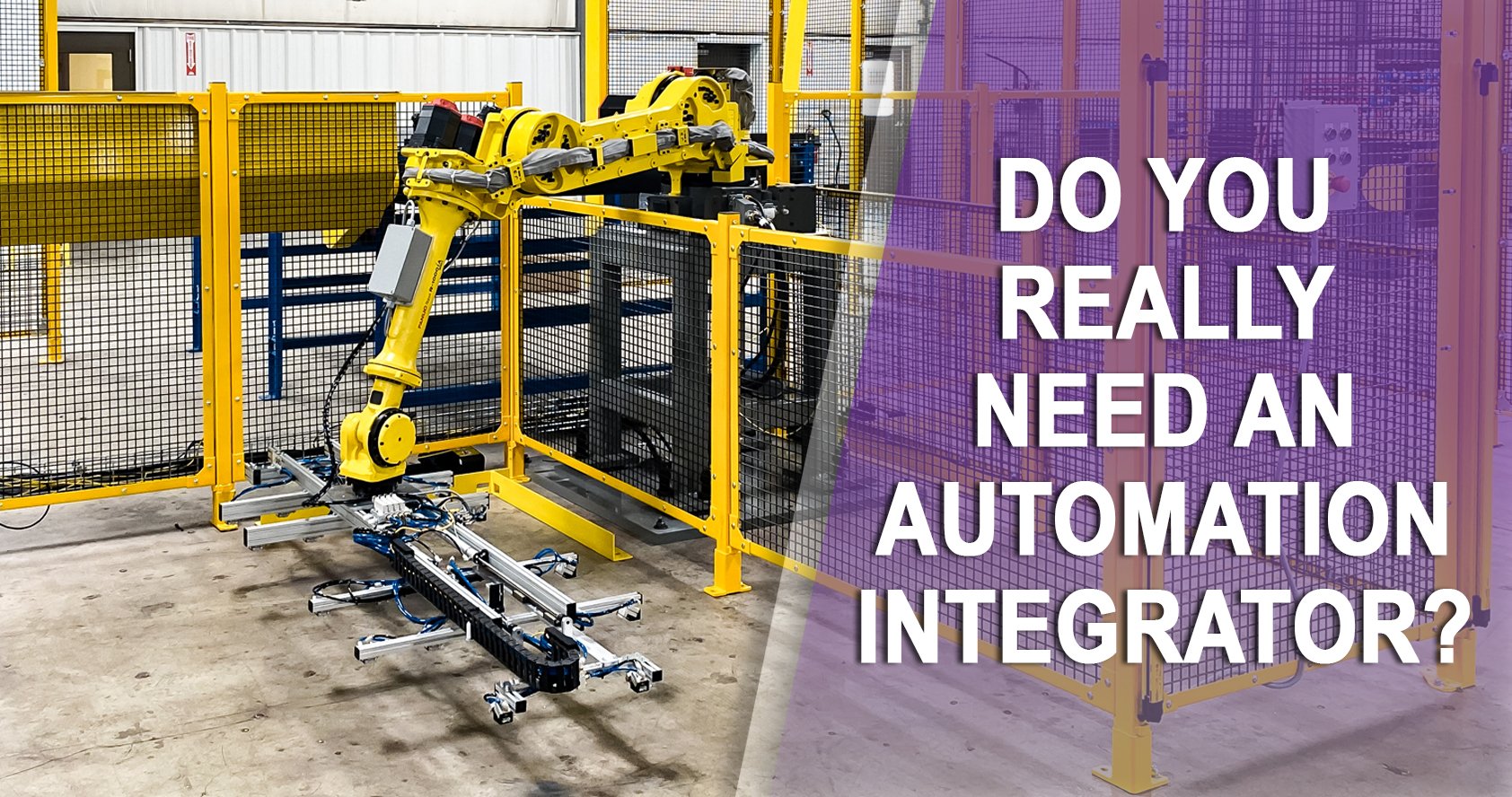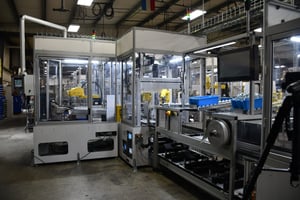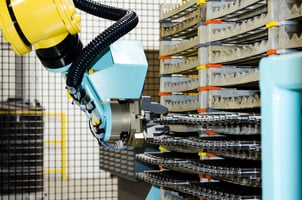Wauseon, OH: Wauseon Machine, a leading provider of automation solutions, tube forming...
Myth vs. Truth: Do You Really Need to Hire an Automation Integrator?

When you’ve realized that automation can transform your business outcomes in some pretty significant ways, the logical next step is to consider how your organization will be most successful in terms of putting an effective automation plan into motion. The topic of leveraging internal resources versus partnering with a professional automation integrator is bound to surface. Because of this, it’s essential to have the most accurate information at your disposal so you don’t make unreliable assumptions in the decision-making process.
To help executives understand the crucial factors that go into weighing your options on this matter, and to clear up any confusion about whether you really need to hire an expert automation integrator, this article provides clear insight into the realities of integration projects.
Use this information to decipher truth from myth as you embark on such an important journey of attaining tangible ROI and business growth from automated solutions.
Myth: An in-house engineering team is sufficiently capable for this type of project
You may very well have a team of engineers who are eager to dive into the automation integration pool. This aspect of engineering may seem attractive to them, but even with a talented engineering group, there are some significant challenges to acknowledge.
Perhaps the most obvious is that regardless of their manufacturing skill level or passion for building equipment, designing and developing fully integrated systems that meet ROI specifications is not their first or only priority as a worker. It is not their core function within the organization, and that actually makes a difference.
Truth: Reputable automation integrators have unmatched expertise.
Not to say that your in-house engineers aren’t talented, capable, and skilled, but a reputable automation integrator offers a level of expertise and experience in the particular function of comprehensive integration that an internal group simply can’t match. If you’re building a valuable ROI model around automation adopted specifically to garner certain business goals, you want to rely on professionals who truly understand what it means to design a system that will fit that model to a tee.
This is what sets an integration partner apart: the fact that their only job is to design and build automated systems that fully align with a company’s business objectives, and that they have years of experience doing just that. They are unequivocally the experts on what is really required to make automated solutions work for your business.
Myth: Creating an internal integration expert is more cost-effective.
Some companies have the idea that they can leverage an existing employee or hire a new one to become the internal automation integrator through proper training and education. The caveat here is that you typically need an entire cross-functional team to tackle an automation integration project, not just one expert. In fact, it would take a substantial investment spanning many years for an employee to develop the necessary skills in areas like mechanical design, electrical design, software, etc.
What’s more is the significant overhead cost to taking this approach. If you decide to build an in-house automation team, what happens when your integration project is complete and you don’t need additional programs, equipment or services for a year or more? Now you’re expending capital on human resources that aren’t actually needed for a significant period of time.
Truth: There are game-changing benefits to partnering with an automation integrator.
In addition to the aforementioned cost-prohibitive issues associated with building an in-house integration team for automated manufacturing solutions, there are other reasons why partnering with an automation integrator is highly beneficial (and perhaps even necessary).
A reputable integrator understands the safety rules and regulations that are imposed by ANSI/RIA, ISO, and OSHA. You could say they “live and breath” these standards, engaging in constant training to stay up-to-speed and performing risk assessments every day. This amounts to a level of experience and knowledge that internal teams don’t typically possess.
There’s also the reality of OEE and how important this is to your organization. If you’re not out there building automation every day (the way experienced integrators are), you don’t have a dynamic understanding of all the nuances that go into building industry-leading automated systems. That’s the investment you make when you choose to partner with an integration specialist.
Myth: Past failures with automation are a predictor of future outcomes.
Maybe you’ve invested in automation in the past and it simply didn’t perform the way you thought it would. When a two-year ROI payback turns into three and a half years, it’s no wonder you’d be hesitant to proceed with more automation and to spend the additional money to hire an integrator.
But an unsuccessful automation project has less to do with whether your business can actually benefit from automation and more to do with how you approached the integration and rollout. Working with a reputable integrator can easily change the course of your future with automation by ensuring that the equipment you invest in actually performs in alignment with your ROI model.
Truth: Choosing the right integrator is the key to success.
To reap the true value inherent in hiring a professional automation integrator, it’s paramount to select one that best fits your organization’s needs and goals. Keep the following success-driven considerations in mind:
- The best way to qualify a professional integrator’s work is to ask for references, specifically from clients with experience in similar applications. Automation integrators need to know more than the ins and outs of the equipment itself; they must be intimately familiar with the specific applications for which those machines will serve a function (e.g., machine tending, material handling, packaging, etc.). Because if you don’t understand the inner workings of a particular production process, you can’t possibly design and perform an integration plan that optimizes that process effectively.
- An essential part of vetting your integrator is knowing whether you’ll need a system that can scale (and how quickly) so you can choose an expert with sufficient capacity. For instance, if you’re looking to onboard one big automated system requiring machines that total $5 million in sales, it wouldn’t be wise to opt for a small shop that only typically manages $5 million in sales over the course of a whole year. Even if the shop says they can handle it, it’s likely they will struggle to do so effectively.
- A quality automation integrator will have a service-for-life mentality and be able to support remote troubleshooting, preventative maintenance, predictive maintenance, a spare parts list, and more. They should be able to serve as an extension of your maintenance group to ensure that your equipment performs according to plan over its lifetime.
- Breadth and depth of experience is a fundamental indicator of how well suited an integration partner is to achieve the kind of outcomes you desire for your investment. Not every entity that knows how to integrate an automated solution within a business operation has the distinct training, knowledge, and experience to do it well. Working with an integrator that doesn’t feature the necessary experience may make the price seem more appealing, but you risk ending up with a process that doesn’t meet your requirements or a stalled implementation timeline, and future complications that come with an unexpected price tag.
With this newfound clarity on the myths and truths surrounding the need for an automation integrator, you can approach the decision-making process from a much more informed perspective.



